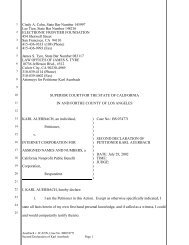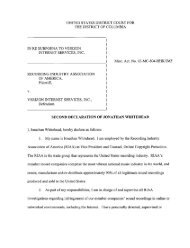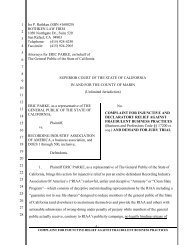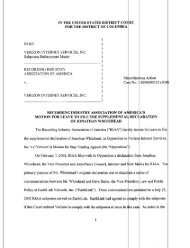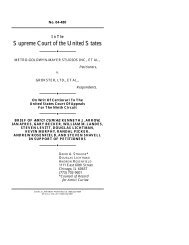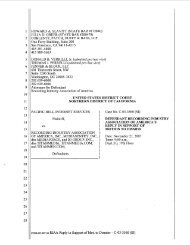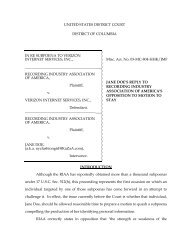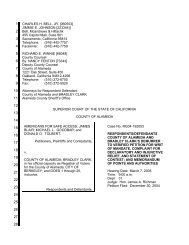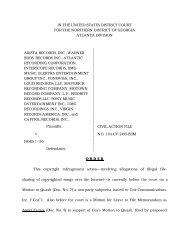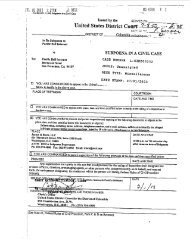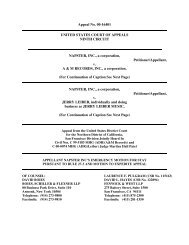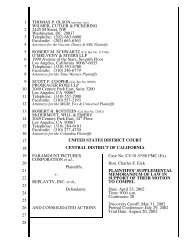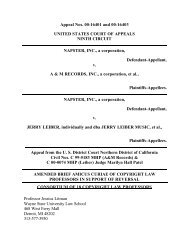Outline of Amicus Brief: Pavlovich v
Outline of Amicus Brief: Pavlovich v
Outline of Amicus Brief: Pavlovich v
- No tags were found...
You also want an ePaper? Increase the reach of your titles
YUMPU automatically turns print PDFs into web optimized ePapers that Google loves.
questionable. 14<br />
But regardless <strong>of</strong> whether the Uniform Trade Secrets Act<br />
permits an injunction in these circumstances, the First Amendment does<br />
not. Where information has already been disclosed to the world at large,<br />
the state’s interest in protecting trade secrets is not legitimately furthered by<br />
enjoining publication by a third party who has lawfully acquired that<br />
information.<br />
Even where information has not been previously disclosed to the<br />
public, the Supreme Court has held that statutes and court orders<br />
prohibiting the disclosure <strong>of</strong> lawfully obtained information violate the First<br />
Amendment. See Daily Mail, 443 U.S. at 104; Landmark Communications,<br />
435 U.S. 829. Once information has already been made public, the<br />
Supreme Court has been clear that the state’s interest in maintaining<br />
confidentiality is not furthered by punishing further publication by those<br />
who have lawfully obtained the information. And it most certainly may not<br />
be enjoined.<br />
In Florida Star v. B.J.F., 491 U.S. 524, for example, a rape victim<br />
sued the Florida Star after it published her name in violation <strong>of</strong> state law.<br />
The newspaper had obtained the information from a publicly released<br />
police report that inadvertently included the victim’s name. While<br />
recognizing the legitimate interests in privacy served by the statute, the<br />
14<br />
See cases cited supra, note 8.<br />
24



